Bruce Cassidy was hired as an assistant coach to then-Boston Bruins coach Claude Julien in the spring of 2016 after spending five years as head coach of the Bruins’ American Hockey League affiliate, the Providence Bruins. When Boston was in danger of missing the playoffs in 2017, the Bruins fired Julien and named Cassidy the interim coach for the final 27 games of regular season.
After a first-round exit to the Ottawa Senators in six games in the Eastern Conference Playoffs, the Bruins removed the interim tag from Cassidy and named him the 28th coach in club history on April 28, 2017. Cassidy joins a list of historic and iconic former coaches, including five Stanley Cup champions and multiple Hall of Fame inductees.
Stanley Cup Winners
Art Ross
Ross was tabbed as the first Bruins coach in 1924 and served that role on three different occasions. Also hired as general manager, he had a career regular season coaching record of 387-290-95 and a 32-33 playoff record. He was the team’s coach for the first two Stanley Cup championships in 1929 and 1939. After stepping aside in 1934, he returned in 1936, and stepped down after the 1939 championship season. He returned to coach for a third tenure in 1941 and spent four more seasons behind the bench, before stepping down to continue as general manager until 1954.
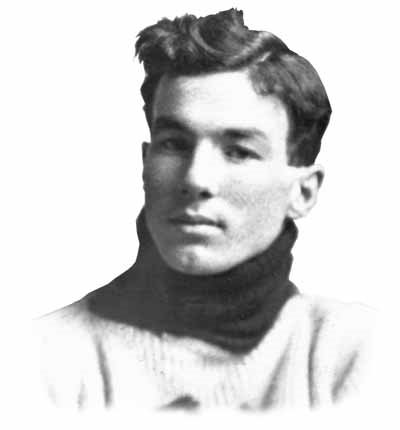
In 1947, Ross donated the Art Ross Trophy to the NHL, awarded to the player who is the regular season leading goal scorer. He was also an on-ice official and helped create the hockey puck which is still used today. He also helped improve the style of nets that were used up until 1984, before the currently style of nets were put into use.
A defensemen in his playing days, Ross was one of the first defensemen to skate with the puck instead of passing it forward. After he retired from his 16-year playing career, he was an NHL official, before moving onto coaching his front office position. He was inducted in the Hall of Fame in 1949 for his playing career over his coaching career.
Cooney Weiland
Weiland took over for Ross in 1939 and two seasons later, he guided the Bruins to their third Stanley Cup in 1941. Weiland had a 58-20-18 regular season record as coach and 10-7 in the playoffs. He played for Ross and, in 1929, he scored 11 goals and 7 assists, before adding two playoff goals. He was also part of the “Dynamite Line” in 1928 with Dit Clapper and Dutch Gainor, which was one of first named lines in NHL history.
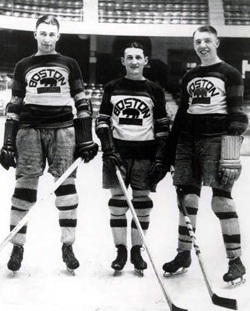
After spending the next 10 years coaching the in AHL, Weiland returned to Boston in 1950 after being hired to coach Harvard University. In 21 years as coach of the Crimson, he compiled a record of 315-173-17.
Harry Sinden
Sinden was hired as coach in 1966 as a 33-year-old and, like Ross, he had three turns behind the bench. In 1970, Sinden capped off his fourth year as coach with the Bruins’ fourth Stanley Cup and ended a 29-year drought after Bobby Orr scored his famous “took flight” overtime goal against the St. Louis Blues.
In 1980, he returned to the bench for the final seven regular season games and 10 playoff games after Sinden, then general manager, fired Fred Creighton. After hiring Gerry Cheevers following the 1980 season, Sinden fired the former Bruins goalie in 1985 and coached the remainder of the season and playoffs. Known to be just as fiery as a general manager, Sinden spent 28 years as GM before stepping aside in 2000.
Sinden was fined by the NHL in 1997 for his verbal abuse toward a video replay official who disallowed a goal in a game. He would also battle with players and their agents over contracts and it boiled over with Dmitri Khristich in 1999. An NHL salary-arbitrator awarded Khristich $2.8 million for his 29-goal performance, but Sinden refused to pay the Ukraine forward and let him sign with the Toronto Maple Leafs.
In 1986, Boston acquired Cam Neely and the Vancouver Canucks’ first-round pick in the 1987 Draft, third overall, in a trade for Barry Peterson. It would be a trade by Sinden that shaped the Bruins for years to come as Boston selected defenseman Glen Wesley with the third pick, who would end up being a big part of the defensive corps with Ray Bourque.
Tom Johnson
Johnson was hired by the Bruins as an assistant general manager in 1970 and later that year, he was named the 10th coach in team history after the team captured their fifth title. He won six Stanley Cups as player with the Montreal Canadiens and one as an assistant general manager in the front office in Boston. Johnson got his eighth title in 1972 as coach when the Bruins beat the New York Rangers in six games.
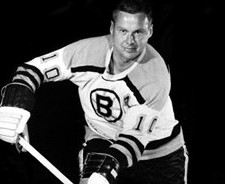
Johnson spent the final two years of his 18-year playing career in Boston (he spent 14 years playing in Montreal and won six Stanley Cups), but was forced into retirement following a number of injuries in 1965. He spent 30 years in the Bruins organization as a player, coach, assistant general manager or advisor.
Claude Julien
One of the longest tenured coaches in club history, Julien spent 10 years as the Bruins coach, but was fired during the season in 2017. He led the Bruins to the 2011 Stanley Cup after a seven-game series win over the Canucks. In 2013, Boston fell in six games to the Chicago Blackhawks in the Cup Final.
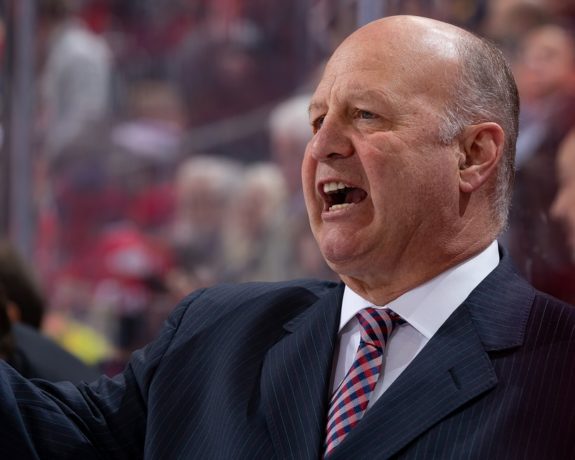
He is the organization’s all-time leader in wins with 476, which includes 57 postseason victories. The Bruins made the playoffs in his first seven seasons and won the Presidents’ Trophy in 2013-14. Seven days after he was fired by the Bruins, he was hired by the Canadiens on Feb. 14, 2017.
Hall of Famers and Award Winners
Boston’s had eight coaches who were inducted into the Hall of Fame: Ross, Sinden, Johnson, Cheevers, Pat Burns, Frank Patrick, Milt Schmidt and Lynn Patrick.
A coach’s life expectancy is not what is used to be, and eight former coaches spent their entire coaching career with the Bruins: Sinden, Johnson, Cheevers, Frank Patrick, Steve Kasper, Terry O’Reilly, Mike O’Connell and Dit Clapper.
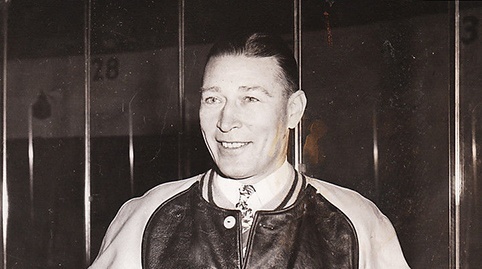
Three Bruins coaches have won the Jack Adams Award, three of the most popular and outspoken in team history. Don Cherry won the award in 1976 when he led the Bruins to an Adams Division title with a 48-15-17 record. Pat Burns took home the award 1998 in his first year with the Bruins when he led the team to a second place finish behind the Pittsburgh Penguins in the Northeast Division standings.
Julien was the last winner in 2011. Boston won the Northeast Division that season, but was followed by the most disappointing NHL postseason in 2010 when the team had a historic collapse. The Bruins held a 3-0 second-round lead over the Philadelphia Flyers, but lost the last four games, including Game 7 at home after leading 3-0. They fell 4-3.
Winners and Losers
In their 95 years, the Bruins have had some successful coaches and some unsuccessful ones. Johnson is the winningest coach (by percentage) in club history with at least 100 games coached with a 142-43-23 record. On the other end, Schmidt was 73-157-46 in his seven seasons as coach to earn the distinction of having the lowest winning percentage.